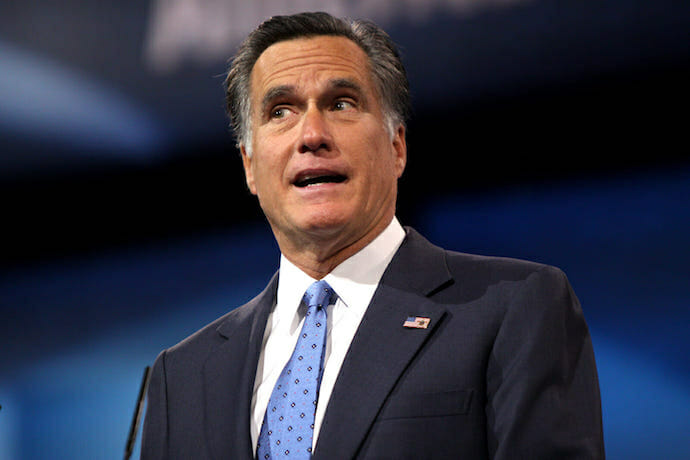
Politics
Conservative Foreign Policy is a Doctrine of Non-Sequiturs
It may instinctively seem to be the right thing to do, but throwing water on a grease fire is the absolute worst thing to do.
A similar dynamic is at play in modern foreign policy politics. Though history has proven the anti-war position far wiser, one could possibly be forgiven for initially having supported the Iraq invasion. Most have since come to admit the war was a disaster and should never have been waged – and, importantly, was an unnecessary distraction from other more material goals in the global war on terror. If this unforced error had not been made, it’s also very likely that ISIS would never have existed – or, if it had, it would not have been much more than another participant in Syria’s multisided civil war.
If there’s one lesson that we should have learned from this twelve-year debacle, it’s that we in the West need to carefully consider our actions before making a move. We need to ask: Is the action we are about to take actually in consideration of a real threat, or is it designed against a made-up one? Similarly, would the proposed action actually fuel the very fires we are trying to put out?
It’s pretty basic, but we need to focus on threats rather than non-threats. Sadly, the conservative focus on non-threats like Saddam Hussein’s Iraq is no mere series of accidents or flukes – it’s a pathology. This is now being underscored by the right wing’s obsession with the alleged security threat posed by refugees, who by all accounts were not responsible for the Paris terrorist attacks. It would perhaps be “fair” to take a “both sides” approach here, but the controversy around this issue involves one party which has taken a measured approach, and one party which has engaged in base fearmongering and xenophobia.
The pathology goes far beyond the “Bush doctrine” with regard to pre-emptive war – it furthermore ties together the obsessions with Benghazi and “radical Islam” verbiage, refugee fearmongering and the affinity for shock and awe over real solutions.
Conservatives choose so often to obsess over the irrelevant, the absurd and the resultantly self-destructive that we might call their philosophy the “non-sequitur doctrine.”
The motivation behind this doctrine is the pursuit of therapeutic measures over smart policy – therapeutic measures which, by the way, have little to nothing to do with actual threats at hand.
One might call this the “catharsis doctrine,” but this puts too much focus on the architects of bad ideas – and moreover discounts the real value of national catharsis. The issue is not simply the seeking of emotional resolution – the outpouring of international relief after the 2011 Abbottabad raid being a prime, positive example – but the pursuit of mere release by way of short-sighted, bafflingly illogical means.
Banal Strains
The non-sequitur doctrine has its more banal manifestations – for instance, the “magic words” theory regarding the left’s avoidance of the term “radical Islam.” Conservatives believe that this semantic omission is definitely impeding our efforts in the war on terror. If Obama started “calling it what it is,” we’d be winning.
But what would this actually accomplish? Terrorism is not something that can be vanished away with a magical hocus-pocus. If anything, using alternate terms impedes the ability of terrorist recruiters to make the case that we are engaged in a holy war against Muslims. This comes at a cost – specifically, the peace of mind of the far right that we are engaged in such a conflict. What else do we materially gain by “calling it what it is”?
This weird idea derived, initially, from the wacky notion that President Obama is a serial apologizer for America. He even went on an apology tour! This “apology” meme had been so central to the GOP’s focus, it was even the inspiration for Mitt Romney’s No Apology book released on the eve of his 2012 run for president – and a theme of the campaign itself.
Semantically, it’s unclear what “apologizing for America” would have even entailed. What is clear is that the President made a series of perfectly normal statements critiquing the actions of past administrations dating back several decades. It’s good that he did: Honest appraisals of past actions are crucial to foreign relations, as well as for maintaining America’s diplomatic reputation abroad.

Then the Benghazi attack happened. The attacks and their aftermath changed the focus of the “apology” non-sequitur to something more sinister – and ultimately even more harmful to U.S. interests.
The evolution began like this: While the attack (and general unrest in the region) was still ongoing, Romney accused the administration of apologizing for America once again. The message was: Obama doesn’t understand the threat, and refuses to admit when he sees Islamist terrorism.
When it became clear President Obama did no such thing, the controversy retroactively became about whether he had said the magic words “terrorism” in the immediate aftermath of the attacks. This issue was soon put to rest, as it was really just a matter of looking at the videotape from the following day.
With a buzzword in search of a meaning – and, after Mitt Romney’s face plant in the second presidential debate of the 2012 cycle, an ego in search of a salve – Republicans perverted the attack into a smorgasbord of spooky conspiracy theories usually couched in a prophylactic dog-whistle “I’m just asking questions” terms to maintain mainstream cover.
The most “mainstream” of these theories was whether Susan Rice (then National Security Advisor) had the right talking points for a series of Sunday shows. Republicans have since been outraged that she didn’t expressly say it was a terrorist attack, and demand to know why the talking points were wrong: Who changed them? Why? What was being hid? (I’m being charitable here in deducing the rationale and coherence of this line of attack.)
Recall that it was unclear for several weeks as to the details of the attacks. At worst, some in the Obama administration were guilty of initially misjudging the relationship between the attack and the context in which it occurred – i.e., region-wide unrest in response to the controversial, inflammatory “Innocence of Muslims” YouTube video. Recall that these demonstrations even included rioters scaling the walls of the U.S. embassy in Cairo.
That sort of intelligence confusion is not good. But to make that misunderstanding – the nuance of which was subsequently cleared up by more intelligence work – the focus of no less than seven congressional investigations and 32 congressional hearings is wholly absurd, and a distraction from real efforts against terror.
None of this is actually helpful for our cause in the war on terror – or in terms of future diplomatic security. If this were in fact the goal, a similar volume of investigative committees would have been set up to determine lessons learned following the at least thirteen attacks on diplomatic facilities under Bush. Even the cockamamie conspiracy theories pushed by the right have their counterparts in the real actions (or inactions) of the Bush administration – e.g., falsehoods being uttered by top-level administration officials, intelligence failures, stand-down orders, ignoring impending signs of terror attacks, etc. None of these instances triggered similar feverish paranoiac reactions on the right – or the mainstream left, for that matter.
The only thing which these latter-day investigations have truly uncovered is that the GOP is wholly unserious about contemporary foreign affairs. And as far as conservative doctrine is concerned, what the attacks truly did was shift this non-sequitur from being about “apologizing for America” to whether or not the proper words are being spoken at any given time.
So here we are, with a self-destructive obsession with saying the right words, and “radical Islam” are the words of the day. We have gone from conservatives being obsessed with Obama hurting their feelings about America to demanding that the President make statements regarding an entire religion because it simply makes them feel better.
The “magic words” strain of the non-sequitur doctrine is linked to another fantasy notion: that the various ills being experienced in Ukraine, Syria and elsewhere could be ended or even substantially alleviated by President Obama merely talking tough to America’s adversaries. Critics here seem to ignore actions – e.g., the impactful sanctions regime and international coalition of alienation imposed on Russia, as well as the military campaign against ISIS (including almost 9,000 airstrikes against ISIS to date) which has rolled back its advances towards Baghdad and Erbil.
Suggestions as to what the U.S. should do are conveniently omitted in such criticism – the problem is really that the president is speaking in measured tones. Perhaps conservatives would prefer a different approach?
We know that magic words – said or unsaid – are not the key. Ultimately, if the rhetorical effectiveness of George W. Bush’s ground zero bullhorn speech had translated into policy effectiveness, we would have a very different security situation in the Mideast right now. (Recall, too, that the post-9/11 swagger dissipated fairly quickly to indifference on the part of catching the top culprit behind the deed. That did far more damage to America’s reputation than any of President Obama rhetorical cautiousness on ISIS.)
Paris and the Most Dangerous Non-Sequiturs
That’s the context. We have a political environment where one party chooses its focus and targets via nonsensical, cathartic means – beginning in earnest with the invasion of Iraq and continuing with an obsession with self-destructive rhetoric. Meanwhile, the intelligence community, the military and law enforcement continue to do their jobs diligently in fighting terrorism, despite the hurdles thrown up in their face.
Now we turn to Paris – and as we do so, we turn from the unhelpful to the actually materially detrimental. We could be talking about the subtle complexities of radicalization, recruitment, state sponsorship of terrorism, the efficacy of military action and a whole host of other germane topics.
Instead we’re having a conversation about barring Syrian refugees from entering the United States. As far as going after the wrong enemy is concerned, there would be no graver mistake than demeaning and scapegoating the very refugees who are escaping the carnage which ISIS and the Assad regime have wrought in Syria. This reaction is precisely the goal of these attacks – not to attack us for our “freedom” but to bait us into succumbing to our worst anti-Islam instincts and to seek revenge at the expense of security.

Republican presidential candidates, for their part, are being played like a fiddle. Take Donald Trump’s strong consideration of surveillance of mosques (later backtracked to “some mosques”) or shuttering of the same and you have a readymade PR strategy for the caliphate. The GOP frontrunner has furthermore called for a database of all Muslims, watch lists for the same, and a return to waterboarding – also known as torture, an atrocity for which we executed Japanese soldiers after the Second World War. Trump has even characterized the refugees trying to seek asylum in the West as a “Trojan Horse” – despite the fact all of the perpetrators of the Paris attacks were homegrown EU citizens.
The conversation has now turned as a result of all this from Muslims coming into the United States to those already here – Trump now claims that thousands of New Jersey Arab Muslims celebrated 9/11 and that he saw the tape. This was initially corroborated by Ben Carson, because in today’s GOP, you’re a moderate if you deny that you saw this footage.
(There are, of course, those non-sequiturs which are so wacky as to be comical. For instance, Presidential candidate Mike Huckabee has suggested responding by tearing up the nuclear agreement with Iran, one of the archenemies of the ISIS terror group. The logic behind this escapes me, but that is perhaps because there is none other than to win Republican primary votes.)
It’s not just Republican presidential candidates who are suggesting we respond against refugees for the Paris attacks. Despite having no constitutional or statutory basis to do so, Republican governors all across the country have decided to bar any Syrian refugees from settling in their states. A Republican leader from Tennessee even suggested expelling refugees already there.
Some “moderates” have shown their hand by arguing for only admitting Christian refugees – thereby openly telling the Muslim world: “We don’t care about you.” The proposed policy presumes we are a Christian country – we’re objectively not – and sends the message that it’s not good enough that you aren’t a part of the religion claimed by the Paris attackers. No, you have to be a part of “our” faith.
Serious question: Would an atheist Syrian be denied entry under this asylum policy? Presumably they would not be likely to embrace radical jihad, as they don’t believe in the tenets of Islam. Because they merely lack a belief in a supreme deity, are they nonetheless as dangerous?
Ultimately, the Republican Party wants you to know that refugees are not to be trusted. Never mind the extensive refugee approval process already in place. Never mind that refugees given asylum are already prescreened by the United Nations refugee agency. Never mind that we are only settling 10,000 refugees. Never mind that only two percent of those Syrian refugees already admitted are military-aged men with no families.
No – refugees are to be feared. And you are to believe we are just opening the doors and letting everyone in. Why? It’s good politics. It’s not surprising that, given the scaremongering coming nearly universally from the right wing, the public is hesitant to let refugees in. What is surprising – and disgusting – is that it’s government officials who are doing the scaremongering. Especially given that many of their offices deal with refugee resettlement on a regular basis, they should know better than to egg on a public dealing with grief, trauma and fear for cheap political points.
Fortunately, France – the victim of the Paris attacks – has agreed to honor its commitment to absorb 30,000 Syrian refugees over the next two years. But let’s indulge the American right’s fantasy for a moment and suppose we, France and its neighbors had/did not. Upon being denied asylum in the West, where would these masses go? Should they return to Syria and no doubt become victims of the ongoing war – and victims to Assad and ISIS’s next mass slaughters? Should they remain in the Balkans, in states woefully unprepared to house, feed and integrate them?
Such action would undoubtedly sow the seeds for ethnic troubles and sectarian conflict with which the Balkans are all too familiar.

Migrants will end up somewhere. Better that some end up here – where again, there is already a rigorous entry process in place – and grateful rather than somewhere else and loathing us for denying them in their time of need. It’s also better that their children grow up in a country providing them freedom and opportunity than the horrors of Assad and ISIS.
(It should not be forgotten that for the millions who have ended up in Lebanon and Jordan – countries of a few million themselves) – it is also important to provide support for them and their host countries.)
Even if you are less concerned with the morality of helping fleeing refugees, remember this: By barring those escaping the horror of the Syrian civil war from our shores – especially five-year-old orphans – we do not endear ourselves to these millions. We literally create our next generation of enemies. More broadly speaking, by creating a non-inclusive society, we are perpetuating the marginalization of individuals who may well be susceptible to future radicalization.
ISIS’s Goal: Islamophobia
ISIS and its ilk do desire an Islamophobic response. We must not give it to them, but sadly we are doing just that. Is there anyone who seriously doubts the refugee fearmongering – even if at its “classiest” is delivered without throaty bellicosity – is having a negative impact here?
We must instead respond in a way that is less about catharsis and more about drying up terrorist recruitment.
Obviously, ISIS is responsible for the Paris terror attacks in a way Saddam Hussein was not regarding 9/11. But that doesn’t mean that bombing with a higher tolerance for civilian casualties, as Senator Ted Cruz has suggested, has any logic to it other than seeking to be pleased with ourselves. It doesn’t mean that we should, as Donald Trump has consistently suggested, put boots on the ground and take Iraq’s oil for ourselves – or bomb the country’s future economic base out of existence by destroying its oil fields. He’s also suggested targeting the families of ISIS members – recall, this includes grandmothers, grandparents, children, babies – as a weapon of war.
There is perhaps no more important lesson that the last fourteen years has taught us about the nature of terrorism recruitment – the ultimate lifeline of terror – other than that it cannot be defeated by force of military arms alone. Egyptian President Abdel Fattah El-Sisi – an Arab president who has received praise from many U.S. conservatives – serves as a good case study here. He has been engaging in a heavily violent crackdown against the Sinai branch of ISIS for months; the results have been poor, and even have backfired in some cases.
Unfortunately, the bloodthirsty war drums are beating again – overshadowing the fact that the horrible truth about ISIS is that it’s not limited to Syria and Iraq alone. Much of the organizational support the group enjoys outside their immediate zone of control in the Mesopotamian vacuum already existed years ago. Remove ISIS from the equation and those groups are still there – note the local roots of Nigeria’s Boko Haram, Egypt’s Wilayat Sinai and so forth. In far too many cases, affiliates and resources that were once under the auspices of Al-Qaeda are now under new caliphate management – or even merely ISIS’s inspiration and incentive.
More dangerous: The motivations that led to ISIS’s rise and the steady stream of deranged, disaffected individuals to their ranks have existed for a while too – and will continue to exist even if the group disappears. Moreover, the sectarian intra-Islamic hatred that fuels ISIS and its kind won’t go away if the caliphate is decapitated.
It should be self-evident, but those travelling to Syria and Iraq to engage in beheadings and mass executions are not going to be merely intimidated out of participation in terror groups by a show of Western power – or as GOP presidential candidate Dr. Ben Carson recently said, “making them look like losers” by “destroying their caliphate.” Nor is Western military power capable of killing such people over the short term without also killing thousands of civilians at the same time. Do we really want to be responsible for thousands more civilian deaths because we need to feel good quickly?
The key thing to remember is that the grievances fueling terror are only further fanned by callous, reckless military-heavy responses to the problem. Recall that we’ve already gone on thousands of bombing raids against ISIS in Syria and Iraq – more than any other member of the coalition.
ISIS’s military offensive on Baghdad and the Kurds has in fact been contained – which is what President Obama was correctly referencing in his (unfortunately ill-timed) comments on the eve of the Paris attacks.
This doesn’t mean we should not be respond via military action – it should be a component, and I’d even argue for a stepped-up ground game in Iraq. But it does mean that the frustrations of asymmetric warfare don’t lead us to resort to simple military theatre for domestic audiences.
Conclusions
The non-sequitur doctrine is dangerous, but those who are not a part of the conservative movement have a choice. Do we engage in quick catharsis and ultimately do more harm than good? Do we peddle harmful rhetoric because we’re running in a GOP primary? Or do we engage in the long-term work necessary to build a society where (mostly) young men are no longer interested in joining ISIS? Stepped-up military intervention may be a part of that. Shock and awe, and turning away Syria’s tired and poor is not.
See, it’s not just about acting tough. It’s about being smart. It’s about having patience. And it’s about not doing utterly wrong-headed things. Importantly, it’s not just anti-American to deny asylum to refugees – it’s also the smart thing to do for U.S. terror policy. Those advocating for refugee resettlement need to make it crystal clear that it is not merely an acceptable risk – i.e., the cost of being a free society – but a net positive in terms of our national security.
We need to show the world that we are a pluralistic society and that we welcome the tempest-tossed. And we need to stop listening to a conservative media establishment which does not care one iota about the national security of this country – unless, of course, it fortuitously lines up with the paranoid fantasies of the Republican primary electorate.

